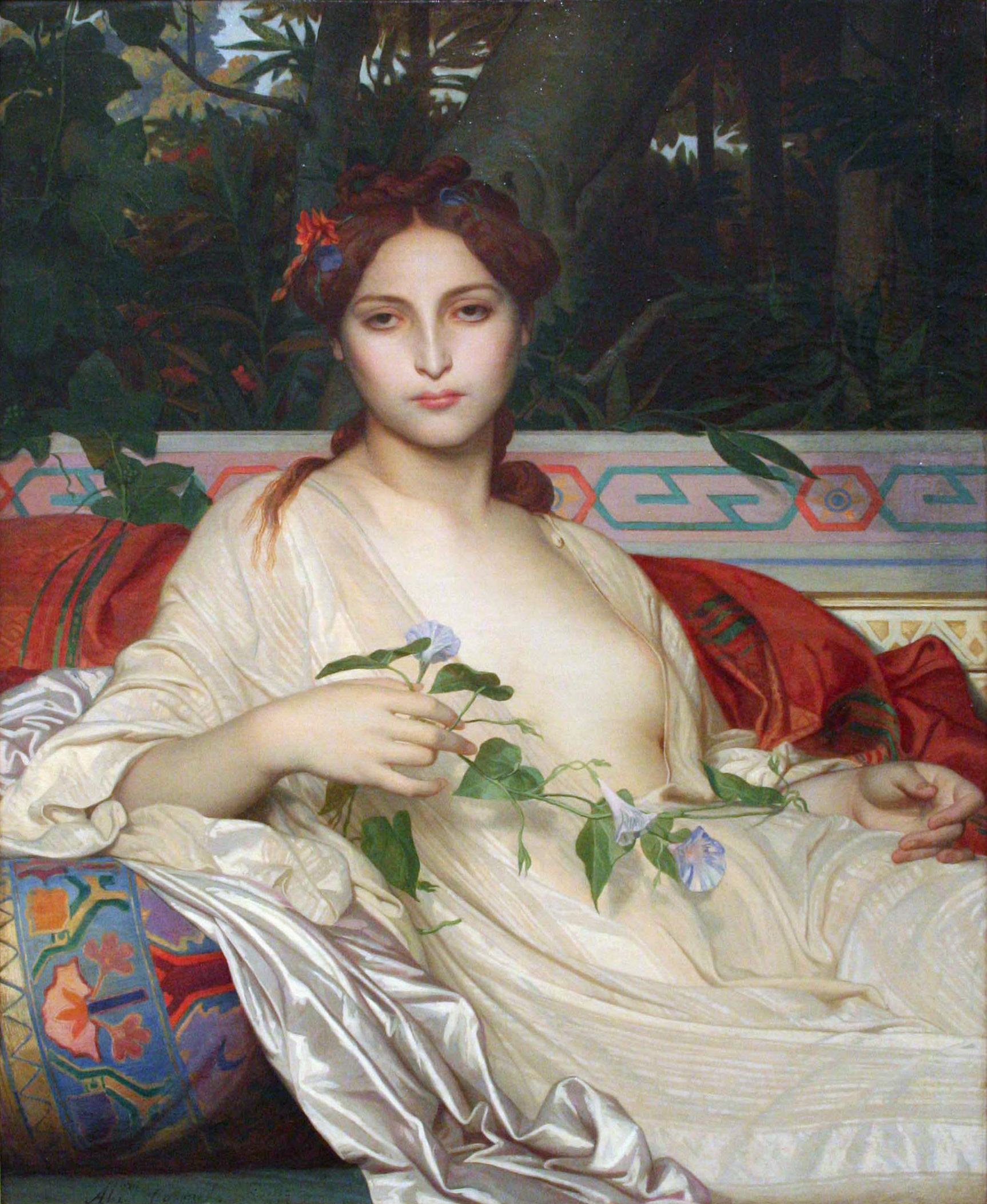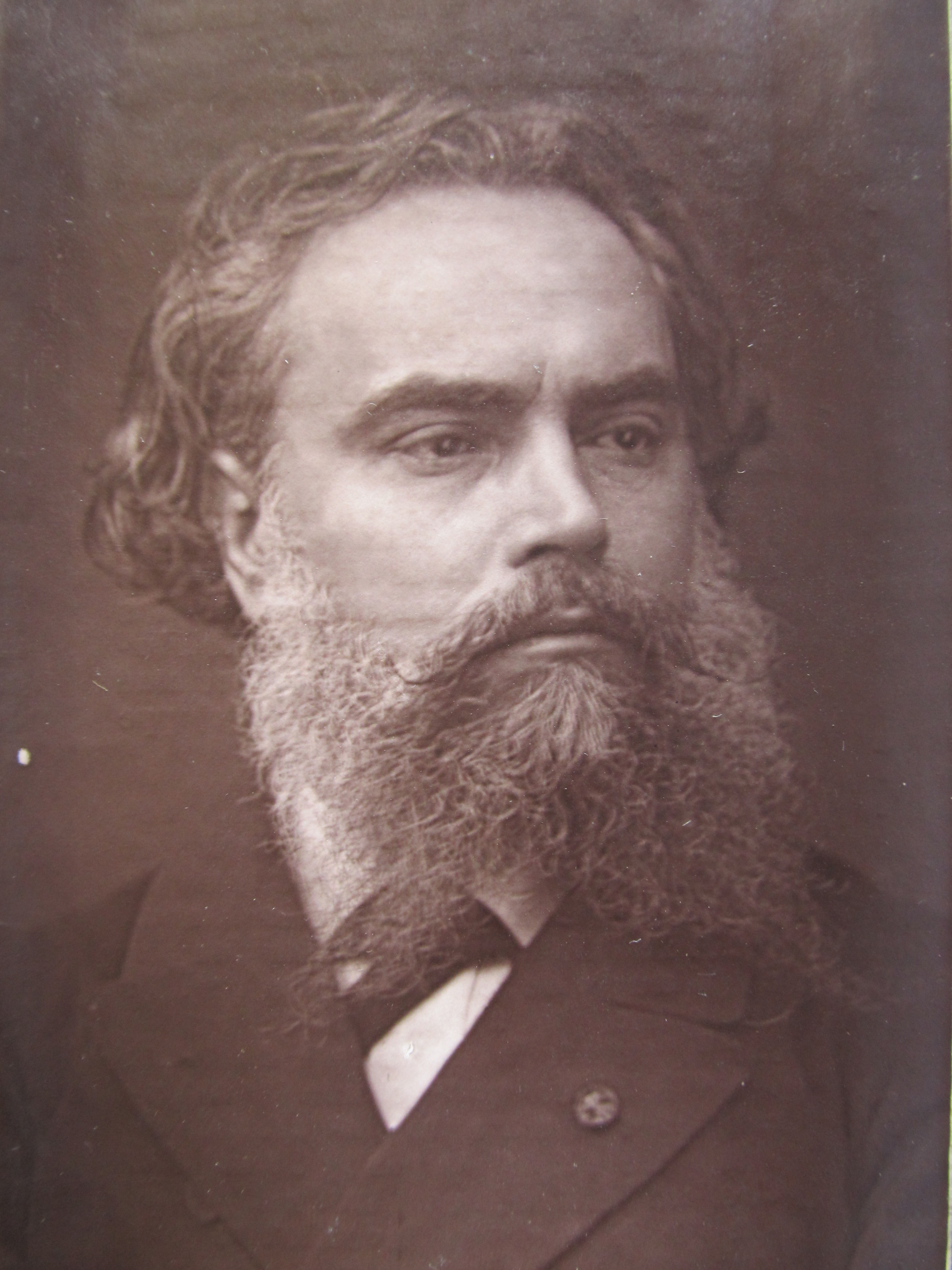Albaydé was inspired by Victor Hugo's poem "Fragments of a Serpent." Its pristine finish, sharp lines, and sober palette place Alexandre Cabanel’s Albaydé at the heart of academic excellence. Indeed, Cabanel was one of the last ardent academicians, determined to maintain the Académie’s strictures and hierarchies in the face of the radical challenges to it posed by, among others, Gustave Courbet. Cabanel didn't allow Édouard Manet and many other painters to exhibit their work at the Salon in 1863, which led to the establishment of the Salon des Refusés. He was also a great opponent of Impressionism. Well, nobody's perfect.
In the poem, Victor Hugo lusts for "the lovely doe-like eyes of Albaydé." In a manner that owes much to Ingres’s languid nudes, Cabanel has depicted the lethargic figure of Albaydé as an object of visual pleasure, and also as an allegory. Albaydé was prepared as part of a triptych, the theme of which was the precariousness of the passage from youth to adulthood. Albaydé represented youthful innocence gone askew. It is compelling that she is depicted as a seductive, if dishevelled, Oriental courtesan, in a space suggestive of the Islamic lounge, a harem, and an opium den.




Albaydé
oil on canvas • 98.0 x 80.0 cm
 Alexandre Cabanel
Alexandre Cabanel